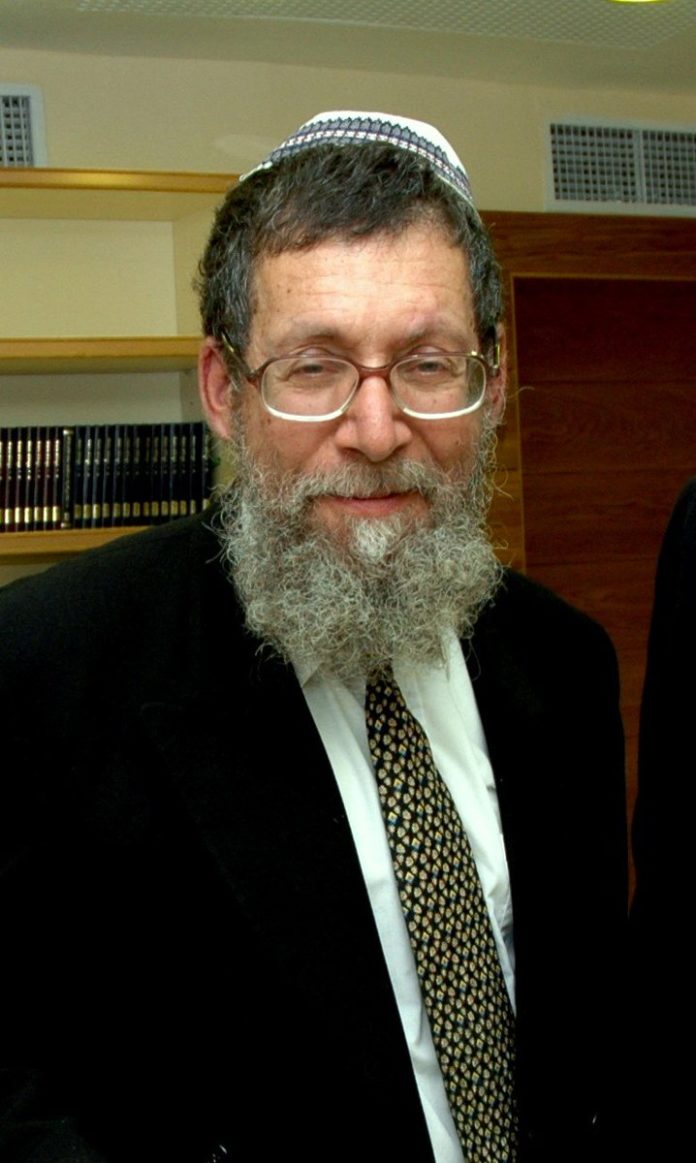Rabbi Yehuda Herzl Henkin Passes Away At 75

JERUSALEM (VINnews) — Rabbi Yehuda Herzl Henkin, one of the prominent Poskim in the religious Zionist community and a grandson of Rabbi Yosef Henkin, passed away Thursday at the age of 75. Rabbi Henkin is survived by his wife, Chana Henkin, the director of the Nishmat seminary for women and the program for female halachic advisors, as well as 5 children. His son Eitam Henkin Hy’D, a prominent Torah scholar in his own right, was murdered together with his wife by Arab terrorists near the community of Elon Moreh in 2015.
Rabbi Henkin,an alumnus of RJJ and Yeshivat Eretz Yisrael of Rabbi Yehuda Gershuni, was ordained by Rabbi Gershuni and also studied with his grandfather Rabbi Yosef Eliyahu Henkin, who gave him rabbinic ordination in 1971. After immigrating to Israel, Rabbi Henkin served for many years as the regional rabbi in the Beit Shean valley and southern Golan heights. During this period he published the first volume of his responsa Bnei Banim, named for his illustrious grandfather, which received Haskamos from Rabbi Moshe Feinstein and Rabbi Menashe Klein as well as from Rabbi Mordechai Eliyahu, Rabbi Ovadia Yosef and Rabbi Avraham Shapira. He later published three more volumes of responsa, as well as numerous halachic articles.
Rabbi Henkin also published four books in English: Equality Lost: Essays in Torah Commentary, Halacha and Jewish Thought (1999) New Interpretations on the Parsha (2001), Responsa on Contemporary Jewish Women’s Issues (2003) and Understanding Tzniut: Modern Controversies in the Jewish Community (2008). After moving to Jerusalem, Rabbi Henkin served as halachic advisor to the Nishmat seminary and also supervised the examinations of the female halachic advisors.
Rabbi Henkin initiated an original approach to halachic issues which demonstrated the fusion between halacha and modern life. Examples of his halachic rulings include: 1) prohibition of using utensils to accompany singing on Shabbat (1:12), 2) permitting contraception for two years after birth if required to take care of the infant (1:30-31), 3) long hair does not constitute a Chatzizah (barrier) for Tefilin (1:6-7), 4) permitting women to say kaddish in the women’s section while men are saying kaddish (2:7) 5) prohibiting use of a curtain as a Mechitzah between the women’s and men’s sections (since it does not constitute a different domain) (2:12-13) 6) Permitting a woman to read the Kesubah at a wedding if it the custom of the place that women speak in front of men (3:27) 7) Prohibiting singing or playing tunes which derive from idolatry in a synagogue (3:35).



